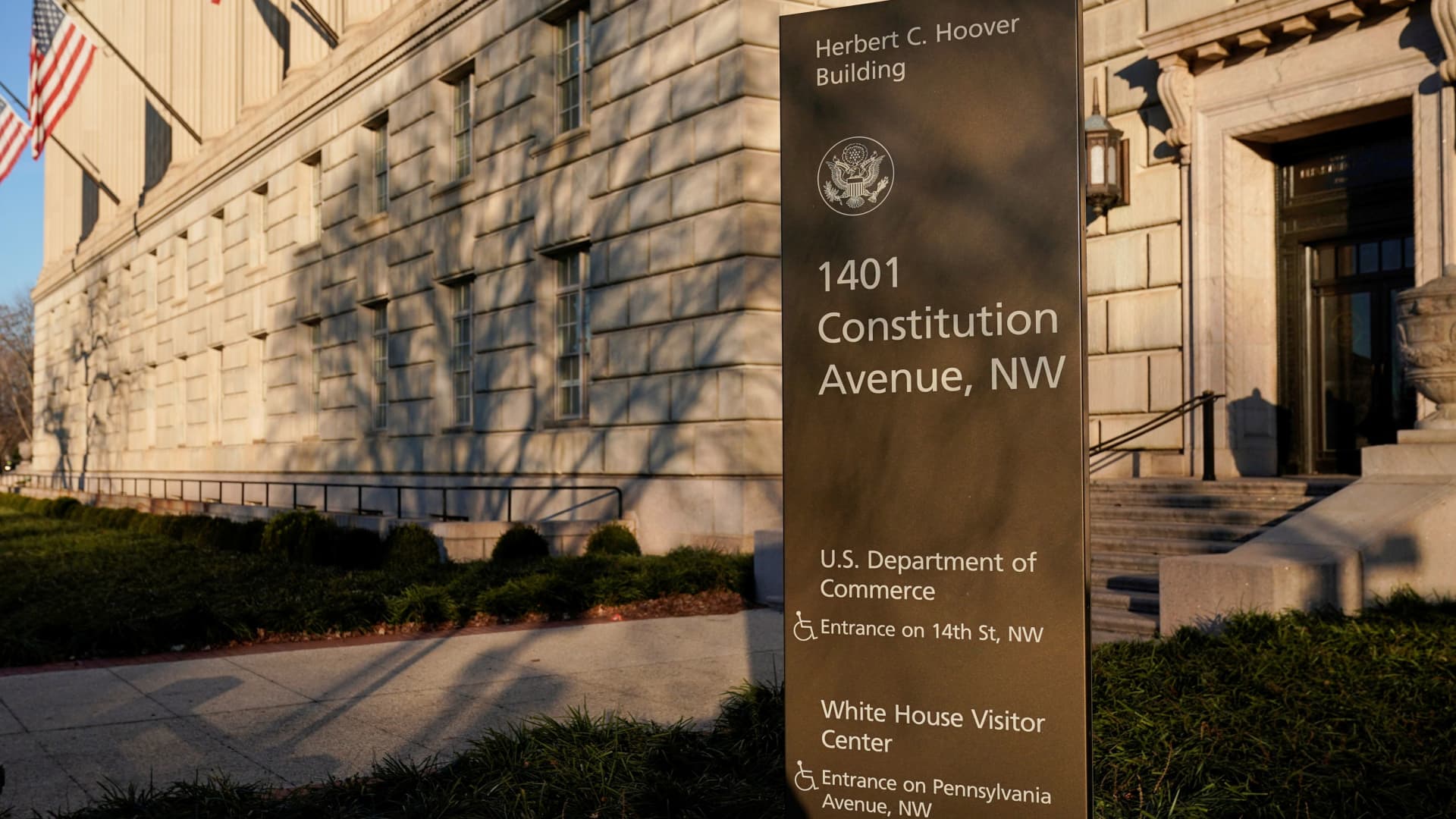The Department of Commerce building is seen before an expected report of new home sales numbers in Washington, January 26, 2022.
Joshua Roberts | Reuters
The U.S. Commerce Department said Wednesday it is imposing new export controls on biotechnology equipment and related technology because of national security concerns tied to artificial intelligence and data science.
Washington has raised concerns that China could use U.S. technology to strengthen military capabilities and help design new weapons through AI. The department said the laboratory equipment could be used for “human performance enhancement, brain-machine interfaces, biologically-inspired synthetic materials, and possibly biological weapons.”
The new export controls, which restrict shipments to China and other countries without a U.S. license, are for high-parameter flow cytometers and certain mass spectrometry equipment, which Commerce said can “generate high-quality, high-content biological data, including that which is suitable for use to facilitate the development of AI and biological design tools.”
This is the latest effort by Washington to restrict U.S. technology to China. On Monday, Commerce moved to further restrict AI chip and technology exports from China aimed at helping the United States maintain its dominant status in AI by controlling it around the world.
U.S. lawmakers have been considering a number of proposals to keep Americans’ personal health and genetic information from foreign adversaries and aim to push U.S. pharmaceutical and biotech companies to lessen their reliance on China for everything from drug ingredient manufacturing to early research.
Last week, U.S. lawmakers called on the Commerce Department to consider restricting the export of U.S. biotechnology to the Chinese military, citing concerns Beijing could weaponize it.
The Chinese Embassy in Washington last week said Beijing “firmly opposes any country’s development, possession or use of biological weapons.”
In August, U.S. lawmakers called on the Food and Drug Administration to ramp up scrutiny of U.S. clinical trials conducted in China, citing the risk of intellectual property theft and the possibility of forced participation of members of China’s Uyghur minority group.





